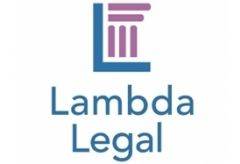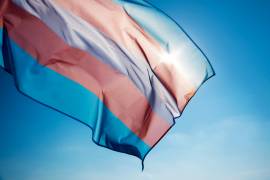
Transgender People Need Safe and Dignified Access to Homeless Shelters
Blog Search
Critical action is needed to remove barriers to shelters for people who are homeless. Among this vulnerable population, transgender people face unrelenting difficulty finding safe accommodation because of their gender identity.
National research indicates that 29 percent of transgender people who attempted to access a shelter were turned away due to their transgender status. Twenty-two percent of those who stayed at a shelter said they were sexually assaulted by staff or other residents. Further, 42 percent of transgender shelter-seekers report having been forced to live as the wrong gender as a condition of access to a shelter. Nearly half said they ultimately left a shelter due to mistreatment.
In light of these staggering numbers, Lambda Legal recently submitted comments to the U.S. Department of Housing and Urban Development (HUD), encouraging the department to adopt a proposed rule that would make it clear that entities receiving HUD funding must treat individuals in accordance with their gender identity in shelter placements and access to other sex-specific programs or facilities. The proposed rule also seeks to clarify the definition of gender identity and to lift the prohibition on inquiries into sexual orientation and gender identity.
At Lambda Legal, we have received many calls from transgender people who have been turned away or otherwise discriminated against while seeking shelter. A harrowing example of this came through our Help Desk in December 2015, when we were contacted by a transgender woman in Illinois who was denied shelter when she attempted to leave an abusive partner.
“When I called back, she said, ‘Okay . . . I have to ask you a personal question. Are you a female all the way? Do you have girl parts or boy parts?’” the caller recounted.
“I was taken aback at the audacity of the question,” she said. “I answered that I have not yet had ‘the surgery,’ as she put it, [but] . . . I was a woman in need of shelter regardless, and that didn’t matter. She told me that that may be, but that this was a shelter for women only, and as far as they were concerned, I was a man. I burst into tears at her callousness.”
This woman’s experience is but one example of the discrimination transgender people too often face when trying to access shelters.
Lambda Legal’s comments on the proposed rule address the following important points:
- We support HUD’s efforts to clarify the definitions of gender identity and perceived gender identity, but we recommend that the proposed definition of gender identity be revised for even greater clarity and to include non-binary identities.
- We support the removal of the prohibition into inquiries about sexual orientation and gender identity, but recommend that HUD emphasize in the preamble of the final rule, and in training and technical assistance, the importance of protecting the privacy of information related to a shelter seeker’s sexual orientation and gender identity.
- We strongly support the requirement that recipients treat individuals in accordance with their gender identity in shelter placements and access to other sex-specific programs or facilities. This is critically important to ensuring that transgender people have safe, fair, and dignified access to shelters when they need it. It is equally important for HUD to clarify that:
- Any alternative or modified accommodations may occur only at the request of the transgender person seeking shelter; shelter staff may not force any individual to accept such accommodations.
- Shelter staff may not provide any alternative or modified accommodations solely based on a person’s actual or perceived gender identity or on complaints from others.
- Shelter staff may not inquire about a person’s anatomy or medical history, and may not condition housing a person according to gender identity upon receipt of documentation concerning that person’s gender.
- Where a covered entity provides alternative or modified accommodations, the entity shall provide access to equivalent alternative accommodations, benefits, and services, or shall refer the individual to a comparable alternative program with availability that will meet the individual’s needs, including access to an equivalent length of stay, equivalent supportive services, and transportation as needed to ensure equivalent access to services.
- We recommend that HUD state clearly in the proposed regulation and the preamble to the final rule that this rule is not a discretionary standard, but rather a mandatory requirement to give all people equal access to facilities consistent with their gender identity.
- We recommend HUD include a provision requiring covered entities to adopt written policies and practice guidelines specifying how they will combat harassment, violence, and sexual assault and, in particular, how they will protect the health and safety of LGBT and gender-nonconforming persons and others who are at increased risk of sexual violence.
- We recommend HUD clarify in the preamble to the final rule, and in training and technical assistance, that the rule applies with equal force to people of all gender identities, including people who identify as neither male nor female.




